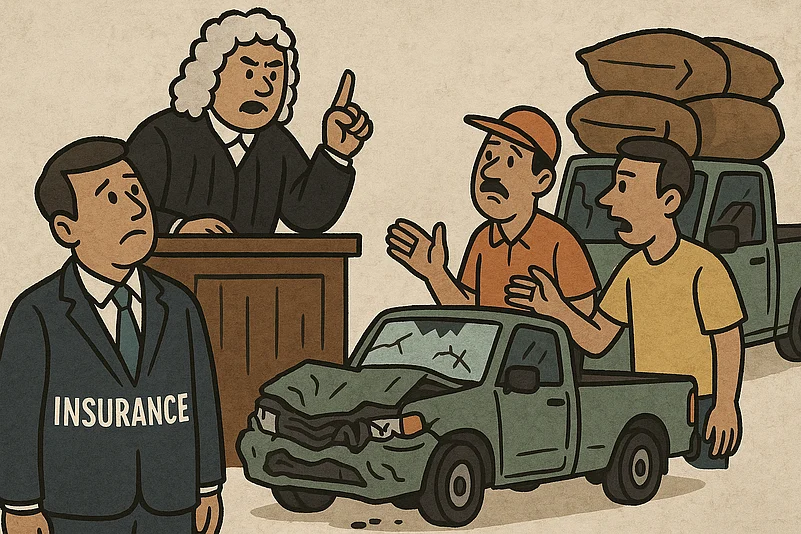The Uttarakhand State Consumer Disputes Redressal Commission has upheld an earlier ruling that directed United India Insurance Company Limited (UIICL) to compensate a Dehradun-based vehicle owner after a fatal road accident in 2017, according to a report by The Times of India. The insurer’s argument that the vehicle was overloaded at the time of the mishap was rejected.
Accident Resulted In Three Deaths
The matter dates back to January 21, 2017, when a goods carrier owned by Surat Dass was involved in an accident on the Lakhamandal–Nada road in Uttarkashi district. A retaining wall along the roadside gave way, and the vehicle overturned, hitting a group of agricultural workers. Three people died in the incident.
UIICL had insured the vehicle in July 2016. After the accident, Dass informed the insurance company and also lodged a report with the Lakhamandal revenue police post. He submitted all the necessary documents to support his insurance claim.
Claim Denied Citing Overloading
However, UIICL did not respond to the claim the first time around. Later, the company rejected the claim with the allegation that the vehicle had been overloaded when the incident occurred.
Dass approached the Dehradun District Consumer Disputes Redressal Commission, which found in his favour. The forum held that the insurance company had failed to produce any proof to substantiate the overloading claim. It noted that the insurer had neither photographic nor documentary evidence to show the number of passengers travelling in the vehicle at the time.
Commission Directs Fair Compensation To Be Paid
The district forum directed UIICL to pay Rs 64,000 for the cost of repairs to the vehicle. It also ordered an additional Rs 30,000 to be paid for mental agony and legal expenses, along with interest at nine per cent per annum from the date of filing the complaint.
The insurance company then filed a revision petition before the State Consumer Commission. However, the state commission dismissed the petition and upheld the district forum’s order. It was observed that the accident had occurred due to a wall collapsing and not because of overloading.
For policyholders, the ruling means that insurers cannot reject claims without sufficient evidence. If it is denied on vague grounds, the insured can seek legal redress. So, courts expect insurers to justify their rejection through proof. This would ensure protection against baseless denials of legitimate claims.













